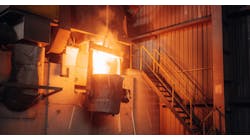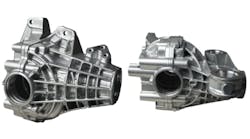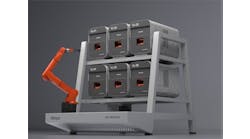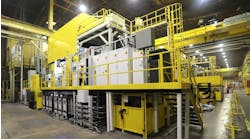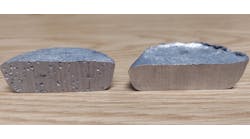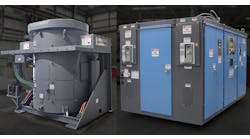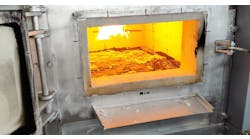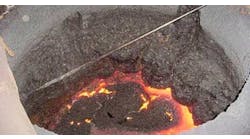Auto parts manufacturer Federal-Mogul announced it has ‘terminated’ the plan to separate its two operating units, Federal-Mogul Powertrain and Federal-Mogul Motorparts. That effort had been announced in September 2014 and would have involved spinning off the Motorparts division to shareholders, resulting in two independent, publicly traded companies.
The prospect of a corporate split had been introduced two years prior, when the separate businesses were first established.
"By separating the Powertrain and Motorparts divisions of Federal-Mogul we are creating two independent, market-leading companies that will be among the largest and strongest in their respective peer groups globally,” chairman Carl Icahn explained in 2014.
At the time of that announcement the spin-off was expected to be complete by mid-2015.
Federal-Mogul Motorparts is a wholesaler and distributor of automotive products with a portfolio of more than 20 brands supplied to OEMs and to the aftermarket, including braking, chassis, wipers, and other vehicle components. The family of brands includes ANCO® wiper blades; Champion® spark plugs, wipers and filters; AE®, Fel-Pro®, FP Diesel®, Goetze®, Glyco®, Nüral®, Payen®, and Sealed Power® engine products; MOOG® steering and suspension parts; and Ferodo®, Jurid® and Wagner® brake products.
Federal-Mogul Powertrain designs and manufactures powertrain components it supplies to original equipment manufacturers, including pistons, piston rings, cylinder liners, valve seats, valve guides, bearings, spark plugs, and more. This organization includes over 70 plants and 12 engineering centers around the world -- include metalcasting plants in North America, Europe, and China, producing cast aluminum pistons and specialty steel piston rings, among other parts.
Michigan-based Federal-Mogul did not offer an explanation for cancelling the spin-off. The two businesses will continue to operate separately, each with its own CEO reporting to a board of directors.
“The separate divisions more effectively serve their unique markets and allow each operating segment to more quickly react to its respective market conditions,” according to the brief announcement.
